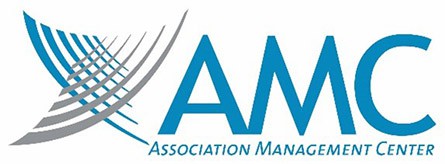In her Conversations by Association podcast episode, Marilyn Jansen, AMC’s executive director of business development, discusses her mentoring relationship with former coworker Lindsey Nelson, CAE, and also recalls how finding female mentors was greatly different when she was just starting her career.
Given that the landscape for women in leadership roles has changed over the years, I asked Marilyn to dive deeper into this concept of having female mentors in the workplace, along with these other AMC staff who have been hailed as mentors by their coworkers:
- Laura Davis, CAE, senior director of membership, marketing, and communications for the American Academy of Hospice and Palliative Medicine (AAHPM)
- Emily Muse, CAE, director of membership and community engagement for AAHPM
- Caryn Odenbach, membership and marketing manager for the Academy of Breastfeeding Medicine
- Deborah Woodall, executive director of AMC’s Creative Media Services team
- Dionne Wilson, CAE, executive director of the National Association of Neonatal Nurses (NANN).
As leaders, mentors, mentees, and female healthcare association professionals, they have much to share about their experiences, roles, and perceptions.
What do you look for in a mentor or mentee?
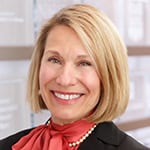 Marilyn: I surround myself with trusted industry relationships that challenge me to be better; people I can trust to tell me the truth rather than what I want to hear, which forces me to look at things differently. I have had several mentees and look for someone who is committed to growth, open to looking at their strengths and weaknesses, and is committed to their professional and personal development. It’s also key to click personally.
Marilyn: I surround myself with trusted industry relationships that challenge me to be better; people I can trust to tell me the truth rather than what I want to hear, which forces me to look at things differently. I have had several mentees and look for someone who is committed to growth, open to looking at their strengths and weaknesses, and is committed to their professional and personal development. It’s also key to click personally.
 Caryn: It’s always important, if you have the choice, to work for someone who will be your champion. Someone who helps you meet your professional goals, challenges you in ways you haven’t been challenged, and who really understands your strengths. One of my mentors encourages me to think differently and helps me strengthen my talents. Be aware of where your talents lie and look at who, inside and outside of your office or industry, can help push you in the direction you need to go.
Caryn: It’s always important, if you have the choice, to work for someone who will be your champion. Someone who helps you meet your professional goals, challenges you in ways you haven’t been challenged, and who really understands your strengths. One of my mentors encourages me to think differently and helps me strengthen my talents. Be aware of where your talents lie and look at who, inside and outside of your office or industry, can help push you in the direction you need to go.
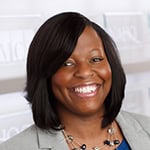 Dionne: I try to mentor many young professionals and individuals of diverse backgrounds because it’s really important for them to see what is possible. I think it is also very important to see more diversity in the workplace, especially in executive roles. The more diversity we see at the highest levels of leadership, the more we can envision a world outside of what currently is.
Dionne: I try to mentor many young professionals and individuals of diverse backgrounds because it’s really important for them to see what is possible. I think it is also very important to see more diversity in the workplace, especially in executive roles. The more diversity we see at the highest levels of leadership, the more we can envision a world outside of what currently is.
How important is it to have female mentors in the association field?
 Laura: I have always felt that it’s important for people to see that women can be in leaderships positions and that they can be CEOs or CFOs, or in charge of a team. But I don’t think that just because you’re a woman, you should choose a female mentor. I think it’s important to have a diverse group of people to seek counsel from—women, of course, are an important part of that—and men have a lot to offer as well. I want to be at the table with both men and women, young and old, and from different backgrounds because we all bring different perspectives.
Laura: I have always felt that it’s important for people to see that women can be in leaderships positions and that they can be CEOs or CFOs, or in charge of a team. But I don’t think that just because you’re a woman, you should choose a female mentor. I think it’s important to have a diverse group of people to seek counsel from—women, of course, are an important part of that—and men have a lot to offer as well. I want to be at the table with both men and women, young and old, and from different backgrounds because we all bring different perspectives.
Caryn: You have the ability to craft your own journey in association management, but you need someone to keep you in check with your goals. Without a mentor, I don’t feel successful because I don’t feel like I have a champion or someone to back me up. If you have someone to talk with about the exciting parts and build on that, you can succeed. I have also had the privilege of having all-female mentors. The culture I’ve found in association management is that people actually care about you; it’s not just a job and you’re not just an employee.
Dionne: To empower a woman with the confidence to see herself in those leadership roles is important to me. One peer who used StrengthFinders said she had all soft strengths, or feminine strengths, like empathy, which implies that soft strengths are feminine and that a strategic strength is masculine. For all early career professionals (women in particular), it’s very important to change that narrative. Trust, empathy, and relationship-building strengths are often used to describe great bosses and are really important strengths to have as you advance in your career. These strengths are about how you lead people, not how you manage people.
Do you find female mentors empowering?
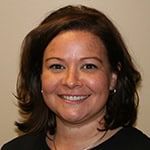 Emily: Female mentors help women learn, innovate, and succeed in their association careers. Women in all workplace settings deserve to feel empowered. Having a role model who is a woman and colleagues who are women reinforce that all ideas, creativity, and innovation are valuable. In the association world, there are women at the table, serving in executive and CEO roles, and respect for different styles of leadership. There are many thoughtful, knowledgeable women leaders who are delivering results and managing their teams within an affirming and values-based culture.
Emily: Female mentors help women learn, innovate, and succeed in their association careers. Women in all workplace settings deserve to feel empowered. Having a role model who is a woman and colleagues who are women reinforce that all ideas, creativity, and innovation are valuable. In the association world, there are women at the table, serving in executive and CEO roles, and respect for different styles of leadership. There are many thoughtful, knowledgeable women leaders who are delivering results and managing their teams within an affirming and values-based culture.
Caryn: Yes, there’s this perception, maybe more in the corporate sphere, of competition between women, but I have never seen it in association management or at AMC. It’s great to see so many positive female role models at AMC, whether they are managers, peers, or direct reports—there are women in many roles who I learn from every day and who encourage me to do my best work. I’ve had the privilege of working for really wonderful women who have helped guide me professionally, and I would not be where I am today without them.
What is the most important aspect about women who empower in the workplace?
Marilyn: Women empower by openly sharing experiences, successes, and even failures. Make introductions to others in your network and encourage them to believe in themselves and make a bold move when required.
Do you see any places in this industry where women can have more room for empowerment?
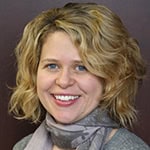 Deborah: At a Global Leadership Summit in 2019, several speakers talked about DEI (diversity, equity, and inclusion) issues and leadership. One speaker said the idea of DEI is to allow and encourage everyone to come to work as their authentic selves. So, what does that mean? If more people felt they could show up to work as their whole, authentic selves, we could be connecting more deeply with each other. And we’d all have more perspective on who people are outside of their roles at work. This insight has become even more relevant today as we are quite literally immersed in our work while at home. Our home has become part of our work and vice versa. I’ve enjoyed learning more about the lives of my colleagues and sharing more of my life with them.
Deborah: At a Global Leadership Summit in 2019, several speakers talked about DEI (diversity, equity, and inclusion) issues and leadership. One speaker said the idea of DEI is to allow and encourage everyone to come to work as their authentic selves. So, what does that mean? If more people felt they could show up to work as their whole, authentic selves, we could be connecting more deeply with each other. And we’d all have more perspective on who people are outside of their roles at work. This insight has become even more relevant today as we are quite literally immersed in our work while at home. Our home has become part of our work and vice versa. I’ve enjoyed learning more about the lives of my colleagues and sharing more of my life with them.
Dionne: You’re going to have to find your inner resources; your happiness, growth, and truth will come from within, not from without. As women, it’s important to come together, be honest, and talk to each other as real people and not as our representatives. There is a lot of negative self-talk with women at every level. You need to remind yourself that you are adequate and you are enough. Lead with authenticity as best as you can, stand with your own truth, keep striving and trying to find your path, and do not let the negative self-talk or the way society views women be a barrier. Knock on the door, and break through it if you have to.
For more insights into navigating a career in the association field, listen to season 1 and 2 of the Conversations by Association podcast.
Megan Toal is a content creator and writer.
Be the first to know about the latest articles, news, and events from AMC. Sign up for our emails!
